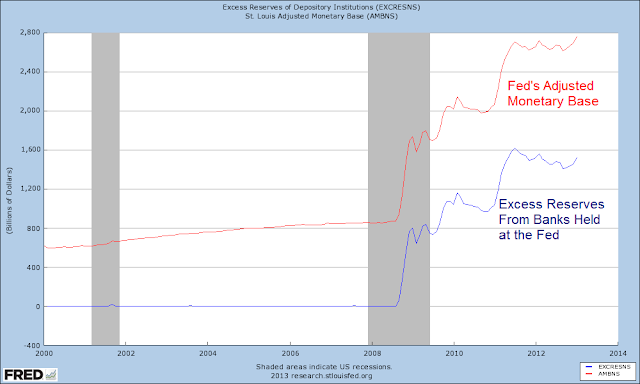"The current bubbles in junk bonds and foreign debt are not in any way driving the economy. Presumably we are seeing somewhat more investment as a result of the fact that uncreditworthy companies were able to borrow at a low cost, but there is no notable boom in such investment.
Similarly, if foreign borrowers have a harder time getting access to credit, it may be bad news for them, but the impact on the U.S. economy will be limited.
If some banks or other financial institutions have over committed themselves in these areas, the plunge in prices may threaten their survival. This could lead to some late nights for folks at the Fed and other regulators, but it will not pose a major risk to the economy."
Dean Baker, Bubbles that We Have to Worry About and Bubbles We Don't, 18 December 2015
And how large was Long Term Capital Management? And the Knickerbocker Trust?
Could they have been said to be 'driving the economy?
And most importantly, is the failure of any major financial institution likely to be an 'isolated incident' in this current financial structure?
I like Dean Baker quite a bit, and read his column every day, often linking to it.
But he may be greatly underestimating the size and interconnectedness and the leverage in the derivatives markets, which while it is a bit harder to see than the housing or tech bubbles is nonetheless there and even more deadly.
It is not the bubble itself that causes the problem alone, but the context in which a risk like that develops, the 'transmission' of the failure throughout the system. Often in a system that has become sufficiently vulnerable the actual event that causes a collapse can seem relatively minor, until it is examined with an open systems mind after the fact.
The system is at the heart of the problem, not the source of the particular failure that sets its tumbling.
Should one ignore the estimated notional size of the $1.2 quadrillion global derivatives market. And the estimates that put it at more than 10 times the total world GDP.
Oh yes, I know, the insurance and cross-party netting surely mitigates these risks. And this is the same bad estimate and theory that feeds and precedes almost every major financial panic and crisis.
What happens when a large failure of a 'single institution' takes down a major counterparty affecting multiple financial firms in a cascading of mispriced risks?
Suddenly these theoretically controlled derivatives turn into a tsunami of cross party financial contagion. This is the real risk, not the derivatives themselves, but their size and their relative fragility to the unexpected, and the concentration of their holdings in a few systemically important places.
Does Dean really believe that it may be too bad for some 'foreign borrowers' but the exceptional American financial system will be able to withstand the winds that blow through the world markets?
What is the estimate of the damage that can be done when confidence fails and there is a widespread and sudden withdrawal of liquidity and a freezing of the short term global credit markets from an enormously interconnected and grossly leveraged financial system that resembles a pyramid scheme?
Are we going to go through all of this again, with the hopes that only the Fed and few Bank regulators will have some sleepless nights but otherwise all is well? The last time they quickly panicked and went to the Congress with a blank check and a threat of civil chaos.
And what is so different now? Now they are like the 300 Spartans, willing to risk all and lay down their careers for the sake of the American public, saving them from the consequences a financial system that has been gorging itself on the rich rewards of massive speculation?
Are you kidding me?
Genuine financial reform and hard systemic firewalls like Glass-Steagall are the only remedy. And we most certainly do not have them now.
Why are there so many plans that now include the 'bail-ins' of public savings and pensions?
I am not fear-mongering. I am raising all of the hard questions that politicians like Elizabeth Warren and Bernie Sanders have been asking, and which have largely gone unanswered behind a wall of opaque secrecy inside a crony club of the revolving door, with deriding dismissals and vague assurances of hope for change.
And we had all of that before the financial crisis of 2008 as well.
Remember Brooksley Born?
"We didn't truly know the dangers of the market, because it was a dark market," says Brooksley Born, the head of an obscure federal regulatory agency -- the Commodity Futures Trading Commission [CFTC] -- who not only warned of the potential for economic meltdown in the late 1990s, but also tried to convince the country's key economic powerbrokers to take actions that could have helped avert the crisis. "They were totally opposed to it," Born says. "That puzzled me. What was it that was in this market that had to be hidden?"
PBS Frontline, The Warning
And the risks are still hidden, and growing rather than diminishing, such is the tide of the influence of Big Banking and Big Money.
In this current financial system, no TBTF Bank is an island of secular failure anywhere in the world.































